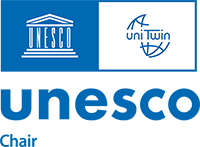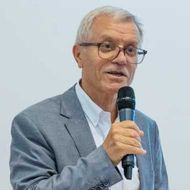- A
- A
- A
- ABC
- ABC
- ABC
- А
- А
- А
- А
- А
- HSE University
- UNESCO Chair on Future Studies
- News
- UNESCO Chair on Future Studies Opens at HSE University
-
-
Education
-
Science
11 Myasnitskaya St., Moscow
+7 (495) 621-28-73
issek@hse.ru
Meissner D., Zhou Y., Fischer B. et al.
Technological Forecasting and Social Change. 2022. Vol. 178.
Abdrakhmanova G., Vasilkovsky S., Vishnevskiy K. et al.
M.: National Research University Higher School of Economics, 2022.
Saritas O., Burmaoglu S., Ozdemir D.
Futures. 2022. Vol. 137.
Sokolov A., Shashnov S. A., Kotsemir M. N.
In bk.: BRICS Comprehensive Innovation Competitiveness Report 2020. Scientific and technical documentation press, 2021. P. 36-98.

UNESCO Chair on Future Studies Opens at HSE University

In 2022, a HSE University department joined the ranks of UNESCO Futures Literacy Chairs. This builds on the work of the ISSEK International Research and Educational Foresight Centre, and the activity of the Human Capital Multidisciplinary Research Centre. Professor Alexander Sokolov, head of the new department, Director of the International Research and Educational Foresight Centre, and Deputy Director of HSE ISSEK, spoke about the establishment, aims and objectives of the UNESCO Chair on Future Studies.
— What is the background of the UNESCO Chair on Future Studies at HSE University?
— The Chair was established at the beginning of 2022 as part of of the ISSEK International Research and Educational Foresight Centre. Prior to its formation, we spent many years successfully interacting with various research teams working under the auspices of UNESCO, with ISSEK employees regularly participating in working groups and coordinating committees of this organization (on foresight and education in particular), and exchanging ideas through academic discussions, publications, and joint projects.

In terms of our most significant collaborations, I would like to mention my work on the UNESCO Science Report, which is published every five years and presents a panoramic overview of the current situation in research and development in the world and its regions. My colleagues Leonid Gokhberg, Director of the Institute for Statistical Studies and Economics of Knowledge, and Tatiana Kuznetsova, Academic Supervisor of the Centre for Science, Technology, Innovation and Information Policy, worked on the chapters on Russia in three issues of the report, including the most recent, published in 2021 entitled ‘The Race Against Time for Smarter Development’.
UNESCO experts regularly make presentations at our annual conferences on foresight and research, and technical and innovation policy, as well ISSEK sessions within the framework of the April (Yasin) Conference. In return, our staff members present the results of their research in the field of long-term forecasting and measurement in science at UNESCO events.
For example, in 2020, for the first time, the organization held a UNESCO High-Level Futures Literacy Summit. High-ranking leaders from the public and private sectors, researchers, teachers, students, and representatives of creative and public communities from around the world took part in the event.
During the summit, our Foresight Centre organized a seminar to discuss the results of the national foresight study on determining priorities and strategies for the scientific and technological development of South Africa until 2030, conducted by HSE University at the request of the National Advisory Council for Innovation of South Africa. It was at this summit where we first discussed the steps required to establish a UNESCO chair at HSE along with other planned joint projects.
— Who initiated the idea to create a UNESCO chair at HSE University? How was it implemented?
— Colleagues from this organization first suggested establishing the UNESCO Chair for Future Studies at HSE in 2019. UNESCO has a long-standing practice of creating chairs in key areas of education, natural and social sciences, culture and communication. They act as analytical centres and links between academia, civil society, and politicians, promoting knowledge exchange and international inter-university cooperation. Over the thirty years of the programme, more than 850 institutions from 117 countries have participated in it. This will be the second UNESCO chair at HSE University: in 2020, the UNESCO Chair on Copyright, Neighboring, Cultural and Information Rights was established.
In recent years, UNESCO has worked on strengthening future literacy at various levels. Future literacy is the ability of people to predict and confront complex and not yet clearly defined problems that humanity will face in the future, thus contributing to the achievement of the UN’s Sustainable Development Goals.
UNESCO organizes systemic work to study the processes of human development and to increase knowledge about emerging trends for a better understanding of what is happening, in order to enable a timely response to emerging challenges. In fact, these are the programme goals for the UNESCO Futures Literature Chairs network, which has already united more than 20 chairs in different regions of the world.
It took us a little more than a year to create a new chair, we put our main efforts into preparing the application, solving organizational issues, and negotiating with existing and potential partners. In particular, we received letters of support from more than 20 leading global foresight centres interested in establishing or expanding cooperation including those in Austria, Brazil, Great Britain, Germany, India, China, Colombia, South Korea, Peru, South Africa, Japan and other countries. When the application was finalized, the corresponding project proposal was approved by the Commission of the Russian Federation for UNESCO and the Ministry of Education and Science of Russia. The agreement on the establishment of the UNESCO Chair for Future Studies at HSE University was signed by Audrey Azoulay, Director General of UNESCO, and Nikita Anisimov, HSE University Rector, in September 2021.

— What directions will HSE develop in after joining the UNESCO Global Futures Literacy Network? What will be the role of UNESCO structures in the chair’s work?
— Joining the UNESCO Global Futures Literature Network will help expand the geography of HSE University cooperation. Under the auspices of UNESCO, internationally recognized researchers from almost every continent will be involved in the chair’s activity. The exchange of knowledge and best practices will contribute to the development of world-class competencies in the field of forecasting methods and processes used in determining the most important emerging and changing trends and events affecting the development of society, economy, science and technology, political processes, values and cultural guidelines at the global level.
We plan to further develop cooperation with those countries we’ve already established strong cooperative ties with. As an example, at the International Academic Conference 'Foresight and STI Policy' that we held in October 2021, more than 50 researchers from 20 foreign countries, including representatives of UNESCO, WIPO, etc. took part in the event. We also plan to involve new partners in the chair’s work.
Our participation in this network will contribute to promoting the culture and best practices of future research, including the research carried out as part of the strategic project ‘Centre for Science and Technology Foresight’ of the ‘Priority 2030’ programme, developed by HSE University and the Human Capital Multidisciplinary Research Center.
— What tasks will the chair focus on? How can foresight methods help in achieving them?
— We’ll focus on conducting research, developing and promoting new skills and competencies in the field of future studying in order to find effective solutions to global socio-economic, environmental and other problems. Foresight emerged in response to the inability of traditional forecasting methods to assess the effects and future risks of such situations and it continues to develop as a tool for finding solutions to extremely complex interrelated issues, such as climate change, energy, water and food security, etc., all of which require innovative solutions based on the achievements of science and technology.
Foresight focuses on determining possible options for the future, finding a target option as a result of coordinated vision of stakeholders, and taking steps to achieve this target option. We are not talking about guessing the future, but about building it together. In order to successfully apply foresight methods, we need to develop and widely promote the relevant skills and competencies, which will become the chair’s main mission. The results of our research will help create conditions for a timely response to potential threats, developing mechanisms to prevent or mitigate the negative consequences of major challenges and making the most of the emerging opportunities.
— How do you plan to promote the results of your work?
— The main information source will be the chair’s bilingual website, where we already post information and analytical materials on future research, provided by our chair and partner organizations.
One of the chair’s most important projects is the formation and updating of the database of trends in socio-economic, scientific and technological, environmental and political development. In the near future we aim to (re)launch our regular trend letters: each issue will be dedicated to analyzing one trend and the assessment of its major challenges, possible scenarios and development of particular countries and economic sectors.
Of course, we will continue to rely on the entire range of traditional formats of expert and academic communications: we plan to hold seminars, conferences, training sessions and master classes with the participation of Russian and international researchers for specialists and the wider audience (politicians, entrepreneurs, representatives of civil society, students, etc.). On an almost daily basis, we’ll be publishing posts on new research projects in social media. To keep up to date, I recommend subscribing to our telegram channel iFORA_knows_how.
— Will iFORA system be involved in the chair’s activity?
— The department’s projects involve the identification of emerging and changing trends. To analyze them, it is necessary to examine a lot of different sources, and monitor key events affecting the development of society, economy, science and technology, political processes, value and cultural guidelines at the national and global levels. Given this task, the big data mining system iFORA is invaluable, and my colleagues at ISSEK have developed it specifically for these types of project. Currently the iFORA database contains more than 500 million documents in Russian, English and Chinese. Thanks to this system, the level of HSE's foresight research has increased significantly, something which has been confirmed by the responses to the results of dozens of projects implemented on behalf of companies, governments, research centres and universities.
- About
- About
- Key Figures & Facts
- Sustainability at HSE University
- Faculties & Departments
- International Partnerships
- Faculty & Staff
- HSE Buildings
- Public Enquiries
- Studies
- Admissions
- Programme Catalogue
- Undergraduate
- Graduate
- Exchange Programmes
- Summer Schools
- Semester in Moscow
- Business Internship
-
https://elearning.hse.ru/en/mooc/
Massive Open Online Courses
-
https://www.hse.ru/en/visual/
HSE Site for the Visually Impaired
-
http://5top100.com/
Russian Academic Excellence Project 5-100
- © HSE University 1993–2025 Contacts Copyright Privacy Policy Site Map
- Edit

